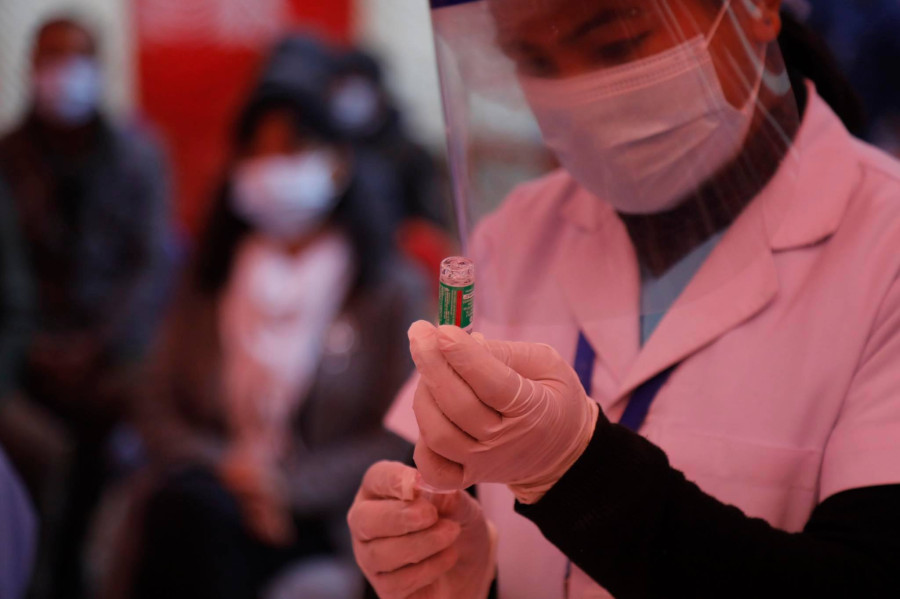Health
Drive against elephantiasis postponed
Covid-19 vaccination campaign gets priority.
Arjun Poudel
The second phase of Covid-19 immunisation drive, which is set to start from March 7, will push back the mass drug administration campaign against lymphatic filariasis or elephantiasis by three weeks.
According to the Epidemiology and Disease Control Division, the mass drug administration drive against lymphatic filariasis, which was due to start from March 13, has been rescheduled for April 2.
“We had to postpone the scheduled mass drug administration drive for lymphatic filariasis to accommodate the Covid-19 immunsation campaign,” Lila Bikram Thapa, a senior public health administrator at the division, told the Post.
“We need to mobilise the same health workers for both campaigns. So we have prioritised the Covid-19 vaccination campaign.”
Lymphatic filariasis is a mosquito-borne parasitic disease caused by filarial worms transmitted by different species of mosquitoes, including Culex, Anopheles, and Aedes.
Doctors say the disease may be acquired during childhood and its visible manifestation may occur only later in life. The disease can lead to temporary or permanent disability, pain, and social stigma.
The World Health Organization has identified the disease as a major public health problem, with an increasing prevalence worldwide. Nepal is one of the 73 countries in the world, where lymphatic filariasis is endemic.
The government started a mass drug administration programme to eliminate lymphatic filariasis in 2003. Under the programme, healthy people above five years of age are given diethylcarbamazine and albendazole.
Five rounds of the mass drug administration programme has already been conducted in most of the districts and the disease has been controlled in 53.
However, the disease has not come under control in some districts, even after 12 rounds of mass drug administration.
The division plans to launch the drug administration programme in Jhapa, Morang, Bara, Dhankuta, Lamjung, Baglung, Parbat, Kapilvastu, Dang, Banke, Bardiya, and Kailali districts this year.
“We have completed all necessary preparations like training health workers, delivery of the drugs and budget allocation to the local governments to run the programme and launch awareness drive,” Thapa said.
The government had committed to eliminating lymphatic filariasis as public health problems by 2020. But the target could not be achieved due low coverage of the programme in some districts.
The Ministry of Health and Population has renewed the deadline to eliminate lymphatic filariasis to 2028.
Meanwhile, public health experts have asked the authorities concerned to learn from the failure of the mass drug administration campaign against lymphatic filariasis and not to let the Covid-19 vaccination programme meet a similar fate.
“For the success of any public health programme, the public should be taken into confidence,” Dr Baburam Marasini, former director at the Epidemiology and Disease Control Division, told the Post. “Success of the ongoing phase-wise Covid-19 vaccination drive will also determine public participation in future programmes.”
According to Marasini, authorities concerned should also focus on the awareness drive to clear rumours and take people into confidence about health campaigns.




 19.57°C Kathmandu
19.57°C Kathmandu















